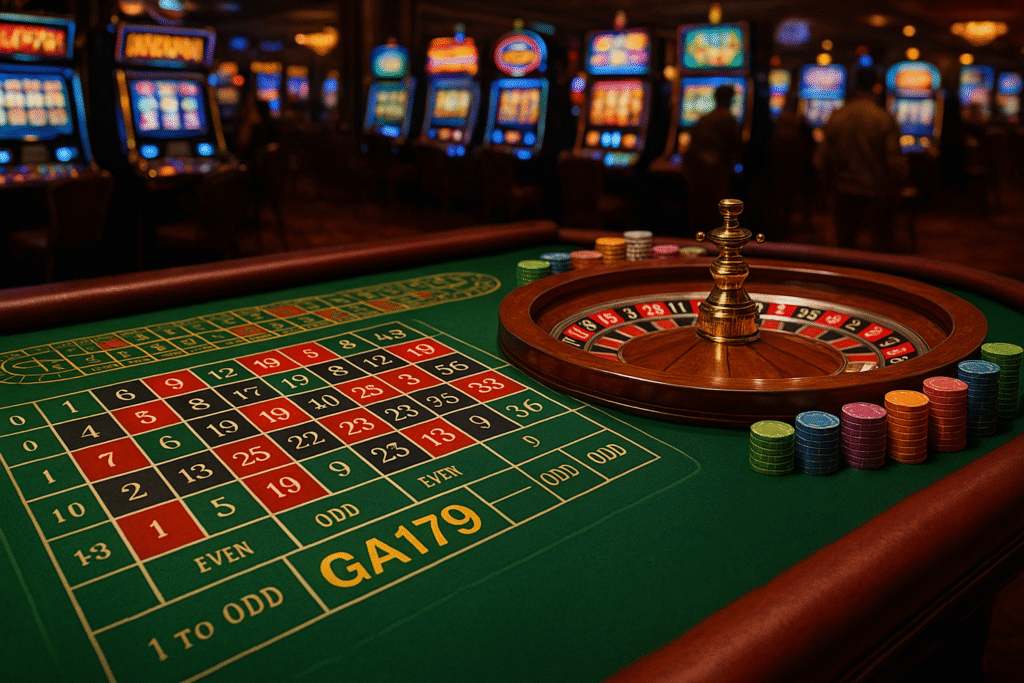
Online casinos are more than just platforms for entertainment — they are carefully crafted environments designed to keep players engaged and coming back. From the flashing lights of slot machines to the strategic layout of betting options, every element in a casino game is influenced by psychological principles. Platforms like ga888 incorporate these design elements effectively to enhance user engagement and create a compelling gaming experience.
One of the most powerful psychological tools used in casino game design is the concept of variable rewards. This principle, drawn from behavioral psychology, suggests that people are more likely to repeat an action when the reward is unpredictable. In games like slots, players never know when they’ll hit a jackpot, which creates excitement and anticipation. This unpredictability keeps players spinning, hoping that the next turn will be the lucky one.
Another key element is the use of sensory stimulation. Bright colors, upbeat music, flashing animations, and sound effects all contribute to a more immersive experience. These sensory cues are often associated with winning, so even small victories feel more rewarding. On platforms like ga888, these cues are finely tuned to enhance each moment of gameplay, making even minor wins feel like major achievements.
Game design also capitalizes on the concept of near misses — outcomes that are close to winning but ultimately not successful. Studies show that near misses activate the same areas of the brain as actual wins, which can motivate players to continue playing. Slot games often display two jackpot symbols followed by a third that just barely misses, giving the illusion that a win is just around the corner.
Personalization is another factor that keeps players engaged. Many modern platforms track user behavior to suggest games, offer tailored bonuses, or highlight preferred betting limits. This makes the experience feel more customized and welcoming, increasing the likelihood of prolonged play. Loyalty programs, point systems, and achievement badges further reinforce this personalized engagement.
The layout of betting options also plays a psychological role. Many casino games subtly encourage higher bets through layout and reward structures. For example, progressive jackpots are only available if a player wagers the maximum amount. This encourages riskier behavior, as players don’t want to miss out on the chance for a life-changing payout.
The illusion of control is also significant in games like blackjack or poker, where player decisions influence the outcome. Even though luck plays a large role, the ability to make choices gives players a sense of mastery and control, increasing their involvement and satisfaction. This is particularly appealing to more strategic or competitive players who enjoy skill-based elements.
Social interaction and community features are increasingly part of the psychological toolkit. Live dealer games, chat rooms, and tournaments create a sense of belonging and competition. Sharing wins, chatting with dealers, or climbing a leaderboard makes the experience more social and rewarding.
Lastly, many players continue gambling not only for the chance to win but also for escape. Casino games offer a break from reality, a way to relieve stress, and an opportunity to immerse oneself in a world of excitement and possibility. When done responsibly, this form of entertainment can provide a temporary mental escape that’s both enjoyable and stimulating.
Conclusion
The design of online casino games is a blend of technology, psychology, and entertainment. From unpredictable rewards to immersive environments and personalized engagement, every element is crafted to keep players involved. Platforms like ga888 understand these principles well, delivering experiences that are both fun and psychologically compelling — a key reason why players keep coming back.